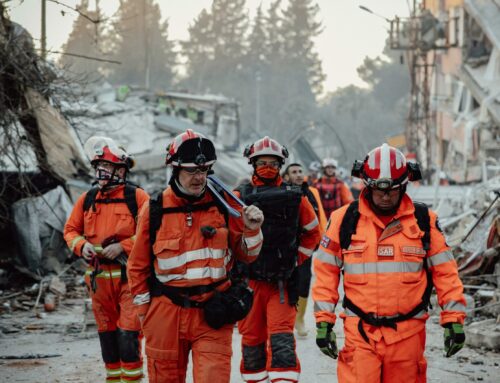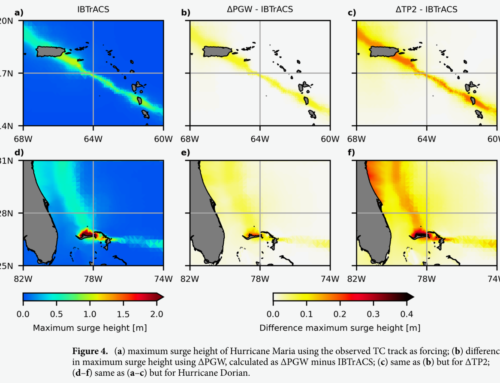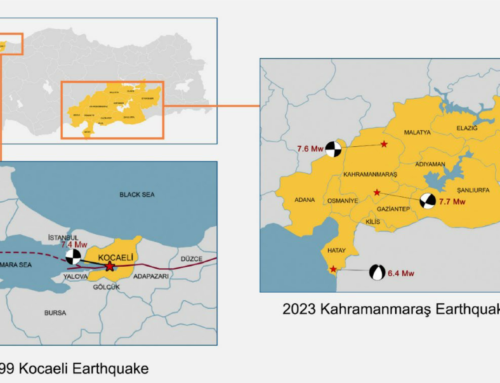Weronika Adamczak, Centre for System Solutions
European countries have one of the highest numbers of deaths caused by disasters in the world. According to the European Commission enhanced practices and response strategies save lives and bolster the capacity of countries and communities to mitigate the effects of disasters.
Serious games – potential solution?
One mode of enhancing practices regarding disasters and ways of responding to them could be using serious games to raise awareness about disaster risk management (DRM). Despite the name, these games are developed not solely for the joy and entertainment of the player, although having fun and being engaged is a big part of how they work.
Serious games are, among others, interactive methods for discussing serious matters such as sustainable development, climate change, or DRM. Such games can also serve the purpose of training stakeholders.
According to the Global Facility for Disaster Reduction and Recovery (GFDRR): “a key principle of inclusive disaster risk management (DRM) is community participation and citizen engagement for more sustainable and resilient outcomes”. Correspondingly, serious games can engage diverse stakeholders – from young people to adults, who are members of disaster-affected communities or representatives of humanitarian organizations involved in the disaster response. As such, serious games enable the inclusion of vulnerable and less privileged groups, such as people struggling with illiteracy or people with disabilities, since all these perspectives can be reflected in the game’s reality. Furthermore, since serious games introduce experiential learning they are better suited for capacity building than giving lectures or presentations – a study showed that after hearing a lecture we remember only 5% of information while learning by doing leads to a 75% retention rate.

What kind of serious games for the DRM are there?
A paper by Solinska-Nowak et al. (2018) called “An overview of serious games for disaster risk management – Prospects and limitations for informing actions to arrest increasing risk” reviewed 45 serious games on the topic of DRM to examine the variety of serious games available free for non-commercial purposes. The authors also evaluated the serious games’ potential for addressing the DRM objectives. While this list is not exhaustive, it gives you some idea of the applications of serious games in DRM.
Different types of serious games serve different purposes
The paper gives examples of various kinds of serious games and how they could be used to address different stages of the DRM cycle. The authors claim that most DRM-related serious games aim to raise awareness about the preparedness stage. The most common format is a multiplayer face-to-face game with role-playing elements. The role-play aspect enables players to enter into somebody else’s shoes and look at the problem from a different angle. This type of game often applies procedural rhetoric – the game imitates the non-simulated world with the game’s mechanisms reflecting obstacles, opportunities, and dilemmas of the real world. In this type of serious game, players can experience an extreme event or its series and draw conclusions from managing the compounding disaster risks. Due to the social aspect participants build relationships, participate in negotiations and conflict resolution, they are also able to exchange their real-life experiences with other players. Consequently, all these learning takeaways may lead to enhanced disaster resilience.

An overview of the purposes of DRM-related serious games. Source: Solinska-Nowak et al. (2018).
Another interesting application of serious games for DRM is documentary games. Although they lack the interactive component, their objective is to guide players through real historical events by using a storytelling approach. The documentary games increase player’s empathy for disaster victims and raise awareness by evoking strong emotions.
Debriefing helps to catalyze the knowledge gained in the game session
Playing serious games on its own may not be enough. According to Solinska-Nowak et al. (2018), an essential part of a serious game workshop is the debriefing session, a comprehensive discussion held after the game where participants can share their thoughts and feelings. Debriefing allows participants to reflect on their experiences, exchange insights, and aggregate their learnings with everyone involved in the activity. Debriefing is also a moment of connecting what the group learned from the serious game with real-world processes. If learning by doing increases participants’ retention rate to 75%, then debriefing further helps to cement that knowledge.
Weaknesses of the serious games approach
Serious games still face several challenges regarding their application to the DRM. One major issue found among the reviewed serious games was that despite their claimed inclusive manner if designed poorly, they may still lack gender and cultural diversity insights, which undoubtedly limits their relevance. Furthermore, the authors mention that poor monitoring and evaluation of the games make it difficult to determine whether the game’s objectives are truly achieved.
Solińska-Nowak et al. (2018) in their paper made several recommendations to address these weaknesses. First of all, they advise applying the procedural rhetoric, as games that utilize it offer deeper insights, especially when paired with debriefing and high-quality facilitation. The authors also highlight that it is essential to design games with the end users in mind. Considering the participants’ needs, and cultural, socio-economic, and educational backgrounds will make the game relevant to them. Lastly, serious games should be easily accessible (especially for non-commercial, educational use). All in all, serious games should be utilized as just one part of a comprehensive set of activities necessary for effective disaster risk management.
PARATUS embraces DRM-related serious games to support stakeholders
Taking into account the potential of serious games for stakeholder engagement, the EU Horizon 2020 PARATUS Project exemplifies their effective application. The project “Promoting Disaster Preparedness and Resilience by Co-developing Stakeholder Support Tools for Managing the Systemic Risk of Compounding Disasters” integrates serious games as a central element in its toolkit. These games are a key component of the “Adapting to Changes” work package, which the Red Cross Red Crescent Climate Centre leads. Project partners address the challenges faced by serious games in managing systemic multihazard risks by ensuring an inclusive design that considers specific backgrounds and conditions within each case study area. Along with implementing appropriate evaluation mechanisms to assess the achievement of the games’ objectives.
The PARATUS project incorporates serious games designed to gather insights into the influence of worldviews and societal pressures on decision-making processes. These games will offer stakeholders an immersive and social online experience to explore various potential future adaptation and disaster risk reduction (DRR) scenarios. Moreover, serious games in the PARATUS project will also help in understanding the PARATUS platform.
Paratus systems diagram
The game scenarios will be based on the PARATUS case study areas – the Caribbean region, the Alps, Romania, and Istanbul. The challenge of the project lies in the diverse selection of case studies and the different types of disasters that may occur in each. For example, the Caribbean region is particularly exposed to the high risk of tropical cyclones. Whereas the Alps case study focuses on analyzing the risk of major flood events and landslides affecting the transportation system in the area.
The Center for Systems Solutions (CRS) and the Red Cross Red Crescent Climate Centre are responsible for developing serious games for the PARATUS project. After holding a co-development session with relevant stakeholders, the CRS is finalizing the Pantano High Water simulation. The simulation will employ role-play within a simulated reality of a fictional region called Pantano. Players of the simulation will face a major flood risk and, based on data supplied in a virtual app, have to decide on the mitigation measures for the region. The Pantano simulation will be available in the following months and other serious game scenarios dedicated to understanding and testing possible mitigation and adaptation strategies.








